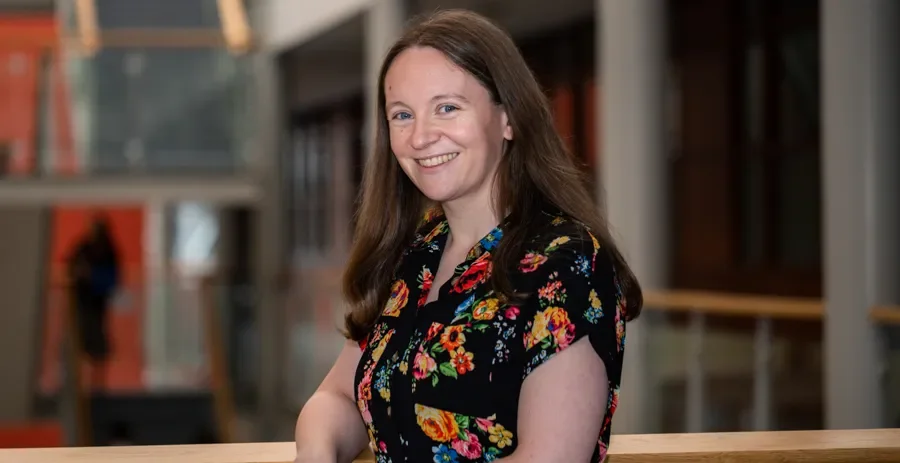

Spotlight on Research: Supporting a growth mindset for learning maths
This week's Spotlight on Research is with Dr Eabhnat Ní Fhloinn, Assistant Professor at DCU School of Mathematical Sciences and Director of the DCU Maths Learning Centre.
Eabhnat, you are interested in how people learn maths. Why do some students ‘get’ maths and others struggle with it in school or at university?
“That is the big question! There are many reasons why this could be. One could be that one approach to teaching maths may not suit all students. Also, maths is a subject that tends to build upon itself, so if students have missed certain core topics, or never got to grips with them, it can impact upon their understanding later. We also know that confidence and resilience can have a big impact upon student success in maths - even for those who liked maths in school, when they get to university they might find it harder and lose confidence with it.”
How can that be tackled?
“One way is to encourage a ‘growth mindset’ in students, where they believe that with effort they can improve their performance with maths. Research has shown that students who believe they can improve, rather than believing they have a ‘fixed’ amount of talent, are more likely to keep working at the subject, and end up improving as a result.
Also, the way we teach students how to approach maths problems is important. In the early years of education, we learn that maths questions have right and wrong answers, but the experience of working out a problem is really important. Sometimes even getting the wrong answer can be really valuable because it makes you try something different to work it out, and by doing this, you are learning something new.”
You direct the DCU Maths Learning Centre, what is that?
“It’s a drop-in centre for students in DCU who want some help with their maths, which is a part of many courses, including science, business and engineering. When students come in, we have tutors who can help them. It’s not about giving them the answers, it’s about showing them how to get to the next step by themselves.”
Does it work?
“Yes, our research shows that providing maths support to students has a positive impact on exam results. We have been able to show that first-year students who came to us for support were more likely pass their maths-related exams.”
How did you become interested in maths education?
“I loved maths in school and I went on to study maths at Trinity College Dublin, but like many of my classmates, it was here that I struggled with maths for the first time. This is a normal part of maths, even for people who work in the area. But I became interested at that point in how people can get past the threshold of understanding something in maths.”
How are you encouraging change for the future?
“We are lucky in DCU, we can work with pre-service maths teachers. When they do a module about problem-solving, we ask them to chart the process and thinking through reflective writing. That’s because when you are working out a maths problem, you get to a point where you understand it, then it is hard to recall what it was like to be confused about it.
By reflecting on how they feel during the process of problem-solving, these pre-service teachers can have more insight into the emotions the students they will be teaching will go through as well.
We are also looking at how we can build resilience more generally in maths education. We work with groups of transition-year students at the Centre for Talented Youth in Ireland. We encourage them to have a more open mindset about maths and learning, and we are following up with those students as they go on through their studies.”
What do you do to relax?
“We have three children aged seven and under, so there isn’t much time to relax, but I do enjoy singing with The Mornington Singers, who have become some of my closest friends over the years.”
